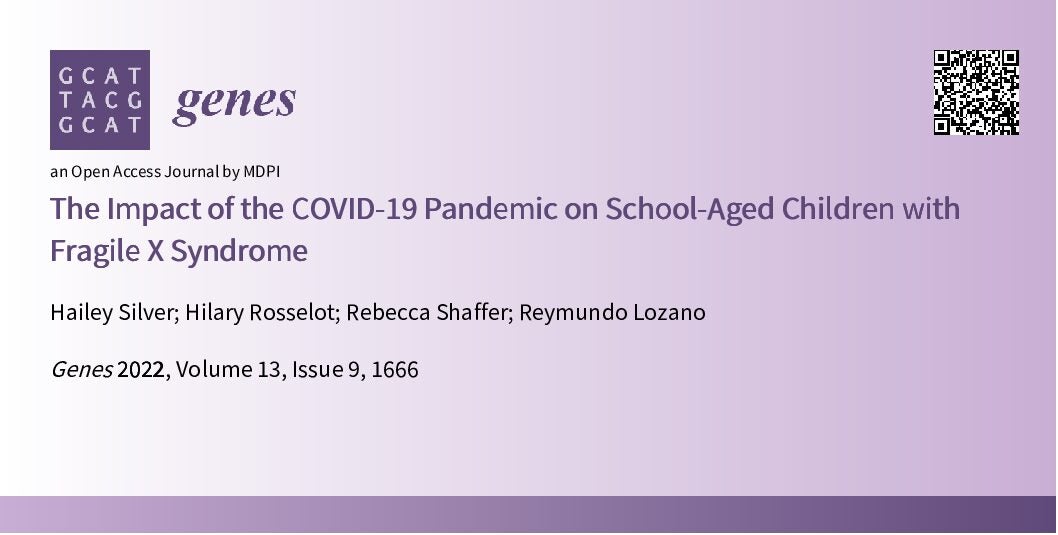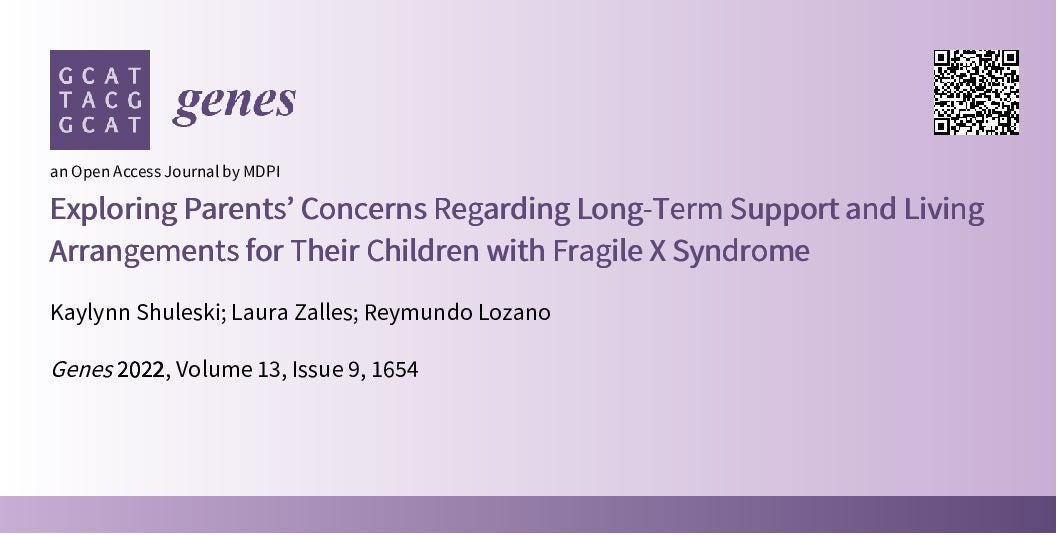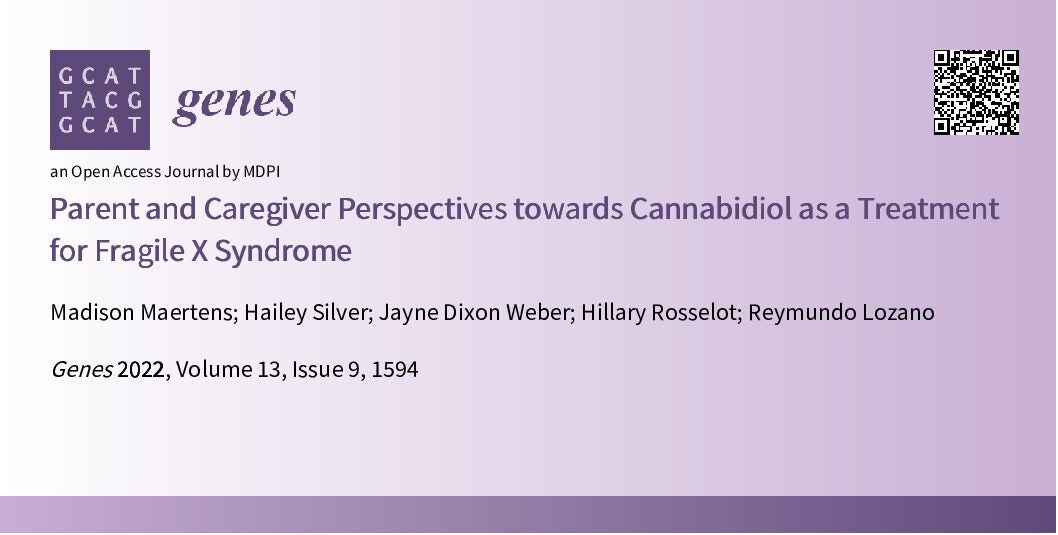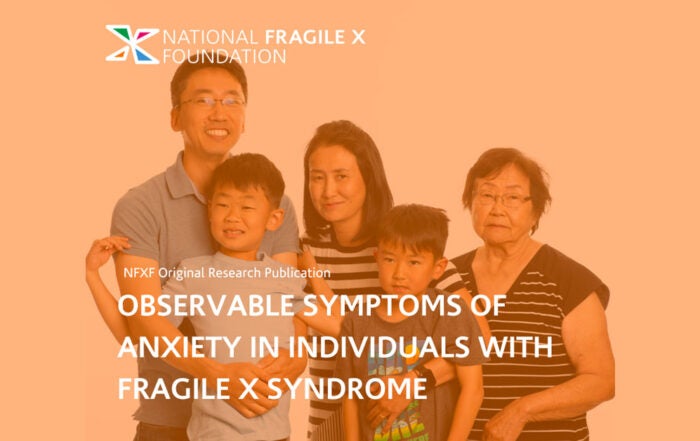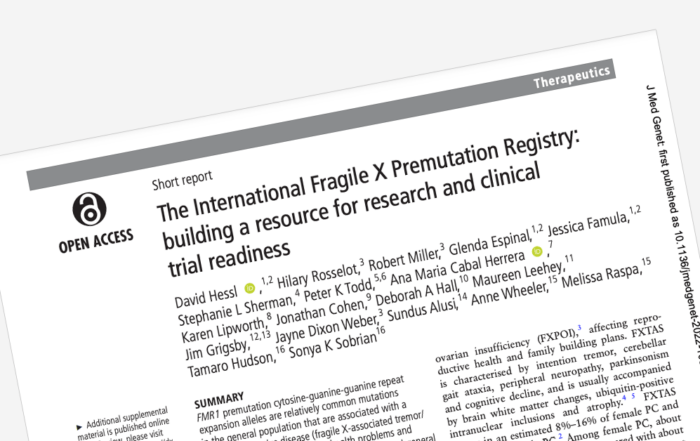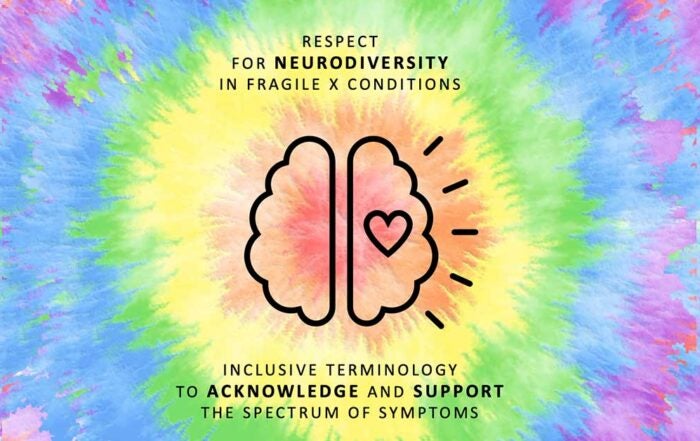Research Results Roundup
We are excited to share with you some of the great research results that have been published thus far. We are committed to keeping the community up to date on research findings, taking time to reflect and celebrate successes in the field of Fragile X-associated conditions and disorders.
Researchers: If you’ve recently published your scientific findings in a peer-reviewed journal, please share your work with us by emailing research@fragilex.org.
Cheers to the amazing scientific advancements in our field and the advancements to come. It would not be possible without your dedication, passion, and drive to make each day just a bit better.
The Impact of the COVID-19 Pandemic on School-Aged Children with Fragile X Syndrome
The pandemic caused by the spread of the coronavirus disease (COVID-19), beginning in early 2020, had an impact beyond anything experienced in recent history. It is important to understand how this pandemic era has impacted school-aged children with FXS so that we may continue to successfully navigate the changes that come with living through a pandemic and to understand what we can improve in the case of a future pandemic.
Exploring Parents’ Concerns Regarding Long-Term Support and Living Arrangements for Their Children with Fragile X Syndrome
Given the limited data regarding future planning specific to individuals with Fragile X Syndrome (FXS) and the growing population of this community, this study sought to explore the concerns and challenges caregivers of individuals affected by FXS encounter when considering long-term support plans.
Long-Term Follow-Up of Telehealth-Enabled Behavioral Treatment for Challenging Behaviors in Boys with Fragile X Syndrome
This study showed the significant impact that behavioral treatments can have on rates of challenging behaviors commonly exhibited by boys with FXS, particularly when parents are coached to implement the intervention with their child via telehealth.
Parent and Caregiver Perspectives towards Cannabidiol as a Treatment for Fragile X Syndrome
Some caregivers and parents of individuals with FXS have given CBD supplements to the individuals they care for and learning about their insights and experiences is important. This was the first study to learn more about their observations and opinions regarding CBD to treat FXS.
Observable Symptoms of Anxiety in Individuals with Fragile X Syndrome: Parent and Caregiver Perspectives
Most individuals with FXS cannot state themselves that they are anxious and self-report is needed in current standardized assessments. The information analyzed in this study will result in the development of a measure where observable and quantifiable data on anxiety in those with FXS can become an outcome measure to be used in future research/trials.
Neuropsychological Changes in FMR1 Premutation Carriers and Onset of FXTAS
This is the first time that Fragile X premutation carriers have been tracked in a longitudinal study. This study provides evidence for early markers of FXTAS that may be helpful in eventually identifying the best candidates for early, preventive intervention.
The International Fragile X Premutation Registry: Building a Resource for Research and Clinical Trial Readiness
The first published publication from the International Fragile X Premutation Registry Advisory Committee. This International Fragile X Premutation Registry is an important first step and can serve as a useful tool for clinicians and researchers in the field.
The Use of “Retardation” in FRAXA, FMRP, FMR1 and Other Designations
Thanks to The European Fragile X Network, FMR1 now stands for fragile X messenger ribonucleoprotein 1, removing the reference to “mental retardation” which has long been outdated in common vernacular.
Questions?
If you have questions about anything research-related, we’d love to hear from you! You can reach out to Anna De Sonia directly, or submit your question or comment through our contact form below.

Anna De Sonia, Director of Research Facilitation
anna@fragilex.org
Last Updated: 06/04/2021


